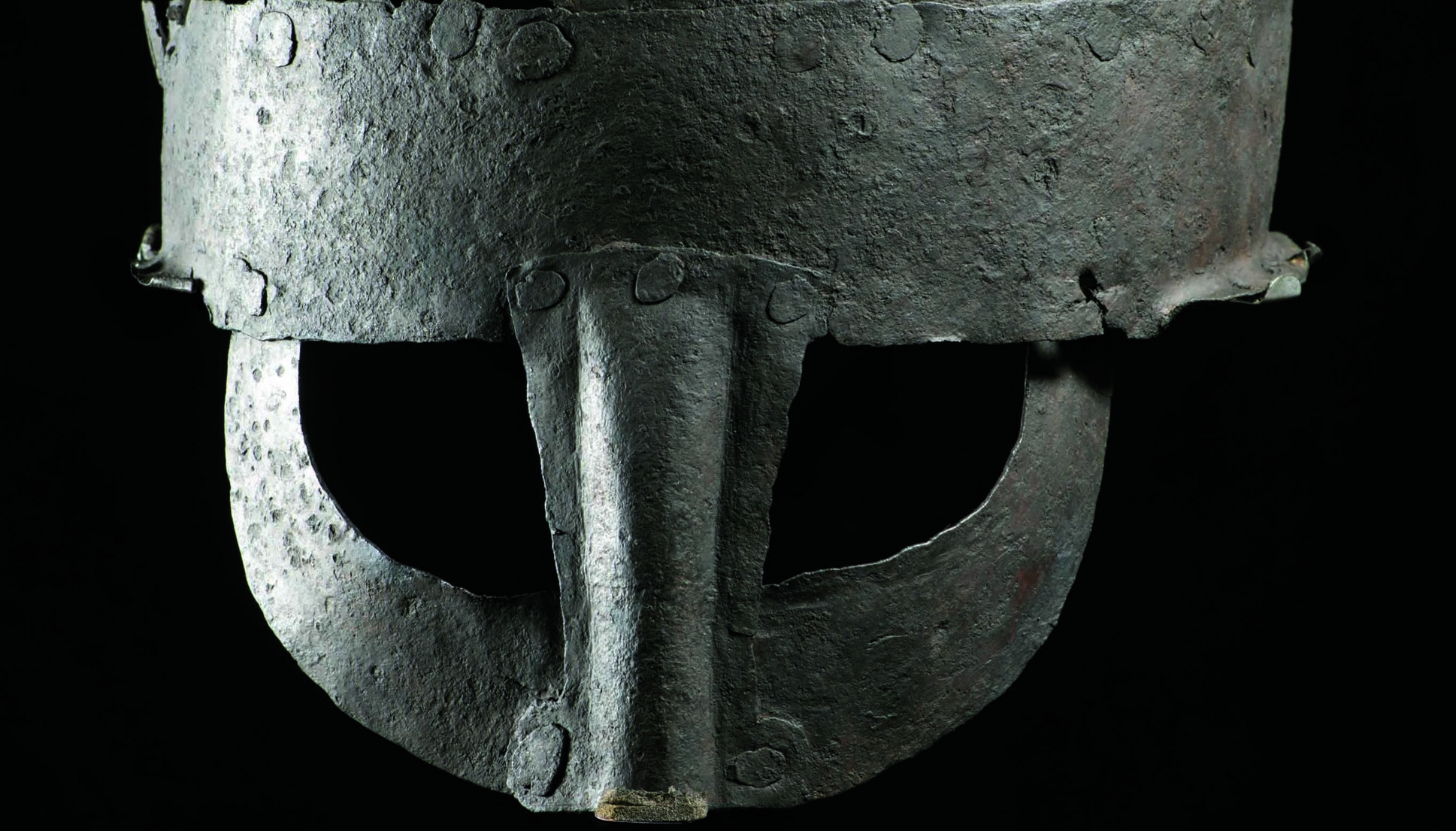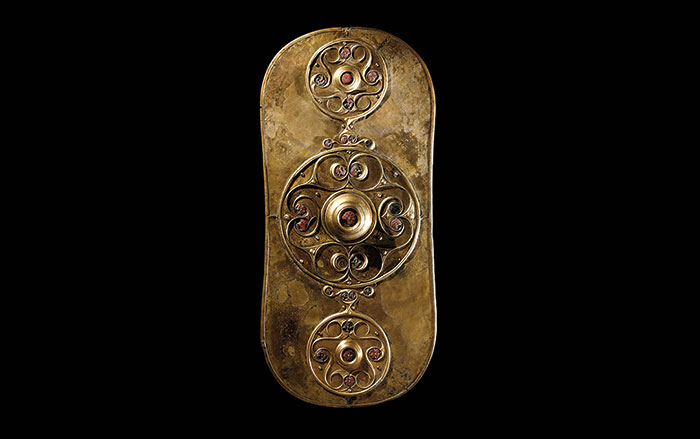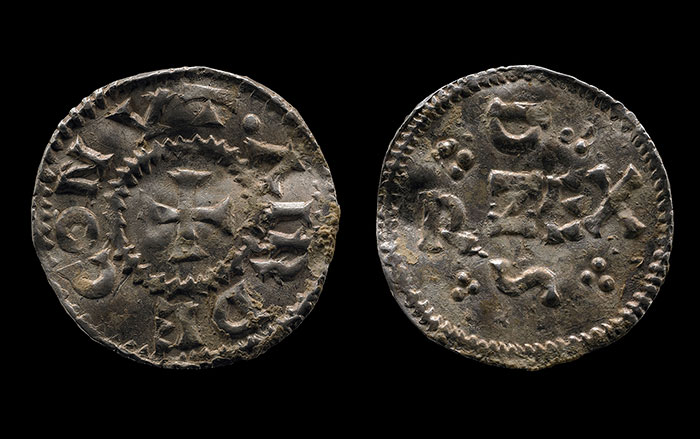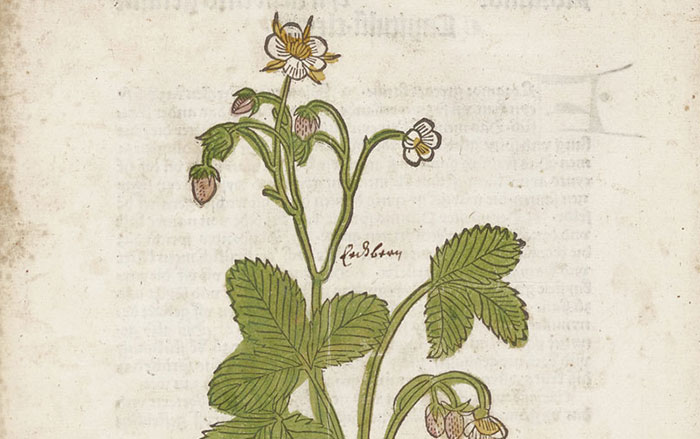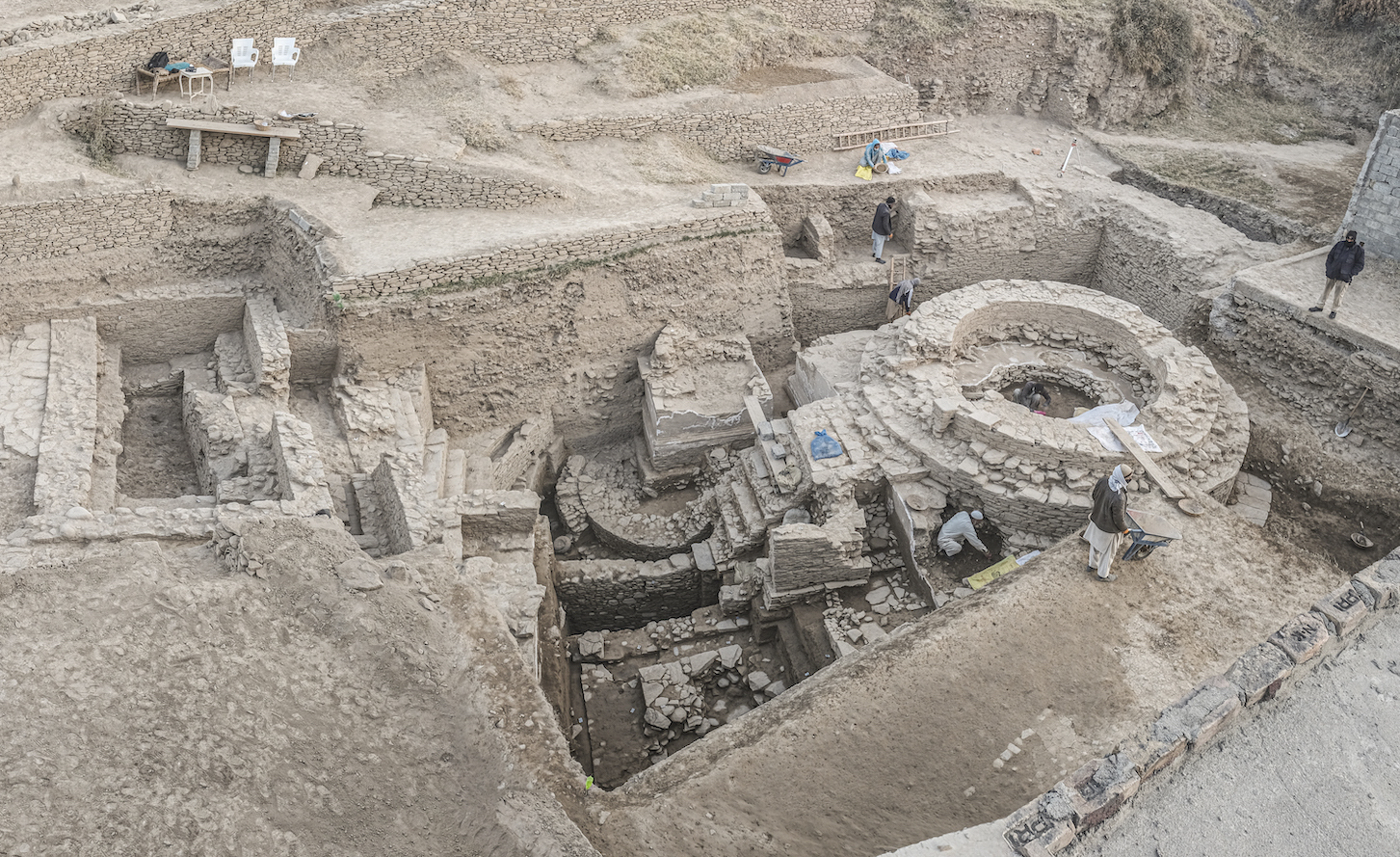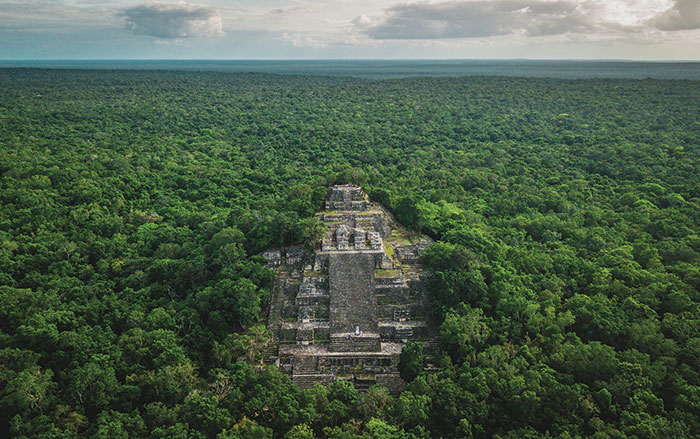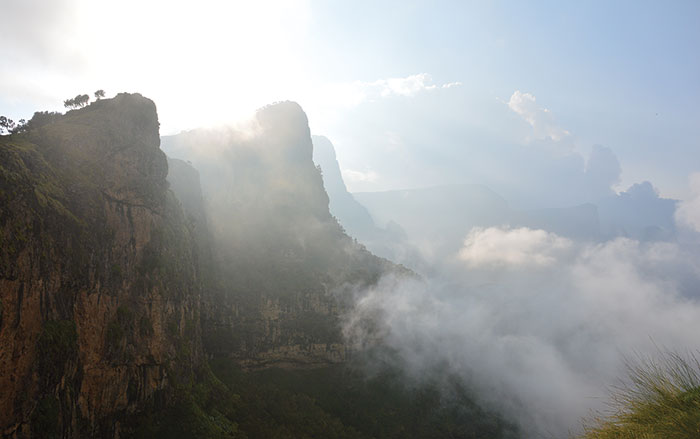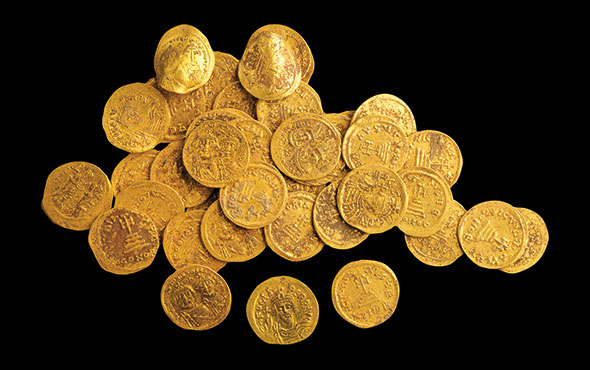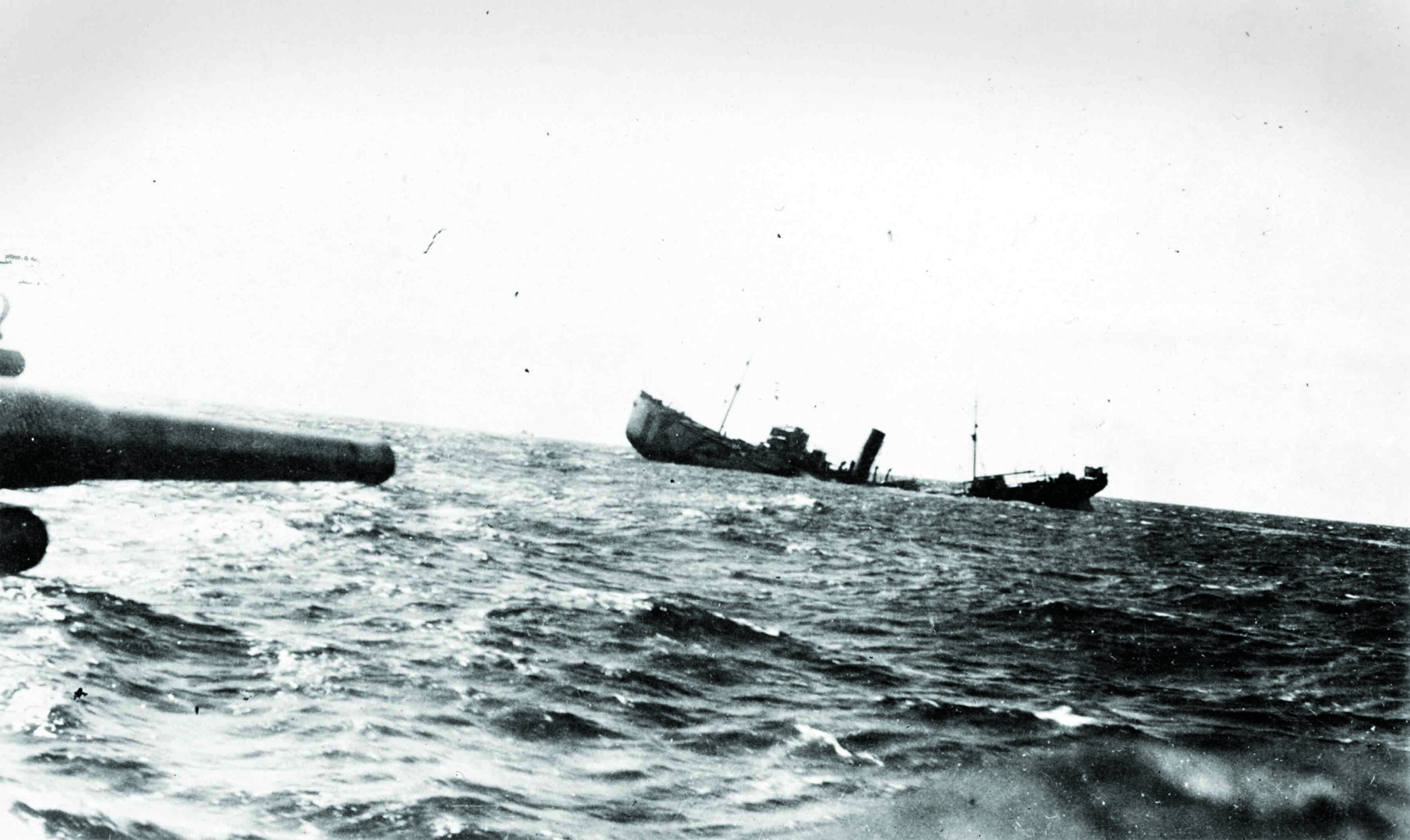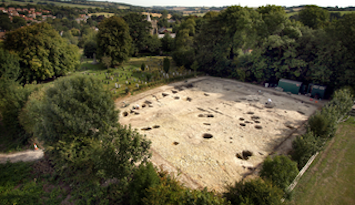
KENT, ENGLAND—According to a statement released by the University of Reading, the monastery in the southeast England’s village of Lyminge recovered from Viking attacks in the late eighth and early ninth centuries better than previously thought. Excavation of the monastery site by Gabor Thomas of the University of Reading has revealed a stone chapel surrounded by wooden buildings. Radiocarbon dating of butchered animal bones indicates that the site was established in the second half of the seventh century and occupied for nearly 200 years. Historical records show that the monks were granted asylum in Canterbury, the walled capital of Anglo-Saxon Kent, after a Viking raid in A.D. 804. Thomas said that there is evidence, including silver coins, that the monks returned to the monastery at Lyminge for several decades before it was abandoned at the end of the ninth century, while Alfred the Great fought invading Viking armies. “Settled life was only eventually restored in Lyminge during the tenth century, but under the authority of the Archbishops of Canterbury who had acquired the land formerly belonging to the monastery,” Thomas concluded. Read the original scholarly article about this research in Archaeologia. To read about an Anglo-Saxon feasting hall unearthed in Lyminge, go to "The Kings of Kent."


